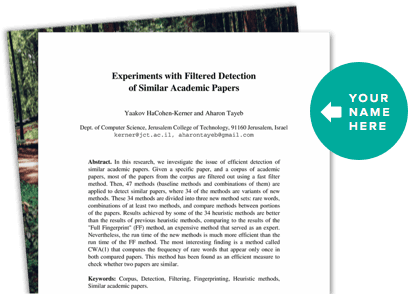About This Project
Our 'graph-enabled idea board' serves as a hub for capturing excess research ideas, allocating microprojects, and properly attributing credit. We'd like to investigate its potential for enabling newcomers to quickly and effectively contribute to ongoing projects.
Ask the Scientists
Join The DiscussionWhat is the context of this research?
Research labs often face a dilemma: experienced researchers generate a surplus of project ideas while newcomers struggle to find an entry point. This dilemma, which we think of as 'knowledge-context asymmetry,' often arises due to concerns around credit attribution, hindering collaboration and making it more difficult for new researchers to integrate into the lab.
We developed a collaborative tool called Lab Discourse Graphs to address this issue. Preliminary use within our lab suggests a marked acceleration in group coordination and the integration of new members. We want to share this innovation with the world and collect some data demonstrating its utility.
What is the significance of this project?
This tool tackles a universal lab challenge: aligning experienced researchers' overflow of ideas with newcomers' need for context. By consolidating 'data requests' in a dashboard embedded within the lab's knowledge base, our prototype lets established researchers 'bookmark' insights and newcomers to rapidly integrate and contribute.
Our lab prototype has generated 95 such requests between researchers. Quantifying the extent of collaboration via this tool offers immediate benefits: it allows feature refinement and paves the way for an accessible open-source utility. In the long run, these publicly available boards have the potential to revolutionize how research labs identify bottlenecks, connect innovative ideas with suitable collaborators, and secure microfunding.
What are the goals of the project?
We aim to quantify the extent to which our Issues board aids newcomers in quickly identifying and executing impactful starter projects. We expect that this tool enables a rapid onboarding process and targeted, effective researcher contributions. Our graph-centric lab software equips us with metrics to quantify the extent of idea exchange and contribution between established and junior researchers.
Utilizing the Issues board, student researchers will choose potential microprojects to initiate. Based on the students' contributions, a data analytics student will pull relevant metrics from the lab graph software (see Methods section). This data will guide our 'cybrarian' in refining the board's design. We can launch the project immediately.
Budget
We will pay undergraduate student researchers $20 an hour, for 300 hours total of pilot work between two students. The students will engage in authentic biology research experience, and use this software to document their work processes (mostly curating data automatically collected in the lab graph software).
A data science student will use the data collected above to track the number of connections and length of time for student researchers to contribute a new hypothesis or result within within the lab graph.
Our developer (currently supported by Protocol Labs) helped us to create this Issues Board plugin; support will fund additional features needed to make the Issues Board scale beyond an individual lab. Support for approximately 3 weeks of their work, at a rate of 2 hours/day.
Endorsed by
 Project Timeline
Project Timeline
In January 2024, three students will pick microprojects from the Issues board that interest them. Over the next several months, they'll document their progress in our lab graph, in weekly lab meetings, and through regular conversations with the senior researcher who generated the project. In May, we'll collate the data accumulated in the lab knowledge graph, with an initial analysis completed in July and full analysis by mid-September 2024.
Nov 13, 2023
Project Launched
Jan 01, 2024
Students selected
Jan 15, 2024
Students identify one Issue from the Issues board to work on
May 01, 2024
Students share the result of their work and select new Issues if completed
Jun 01, 2024
User data extracted and collated from lab graph software
Meet the Team
Team Bio
Our team includes two PhD students and a research scientist (Issues board generators), one undergraduate student (Issues board claimer), and a "cybrarian" (Issues board developer). In this project we will bring on two more undergraduate students as Issues board claimers, as well as a data science student.
Matthew Akamatsu
In addition to doing research in stem cell biology and biophysics, we design and pilot software aimed at increasing coordination and collaboration among researchers in research groups. Started during the pandemic in a collaboration with human-computer interaction researchers, this part of our lab has blossomed into an ongoing "applied metascience" and science activism project aiming to shift the culture of scientific research toward equity, sustainability, and accessibility. The project has attracted collaborators in philanthropic research, biology, artificial intelligence, and computer science.
Lab Notes
Nothing posted yet.
Project Backers
- 3Backers
- 1%Funded
- $62Total Donations
- $20.67Average Donation


